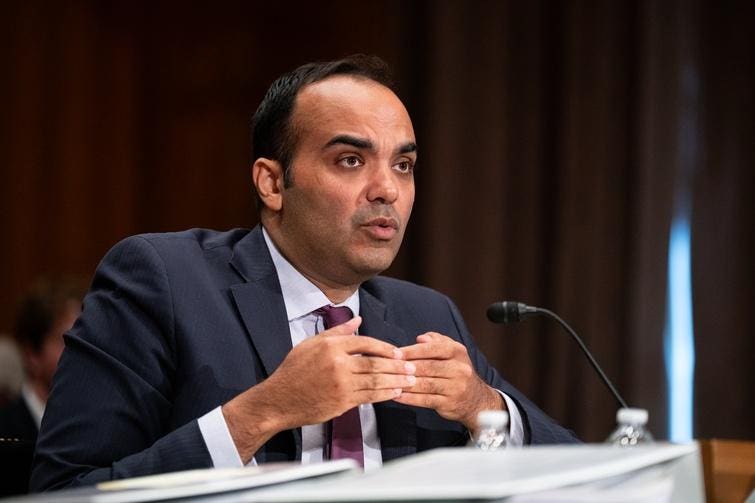Consumer Protection and Medical Debt Relief:
The Consumer Financial Protection Bureau (CFPB) has finalized regulations that will significantly alter how medical debt impacts consumers’ creditworthiness. The new rules prohibit lenders from considering medical debt when evaluating loan applications and mandate the removal of medical debt from credit reports. This transformative change aims to alleviate the burden of medical debt on approximately 15 million Americans, who collectively hold an estimated $49 billion in medical debt. While medical information will no longer be a factor in lending decisions, it can still be used for specific purposes, such as verifying requests for medical forbearance or confirming healthcare expenses covered by loans. This action by the CFPB builds upon the 2023 decision by major credit reporting agencies – Equifax, Experian, and TransUnion – to remove medical debts under $500 from credit reports. The CFPB anticipates that the new rule will lead to an average 20-point increase in credit scores for those whose medical debts are removed. This is a significant step toward decoupling healthcare costs from financial well-being.
Raw Milk Controversy Amid Bird Flu Emergency:
Raw Farm, the largest raw milk producer in the U.S., faces challenges and opportunities amidst a bird flu outbreak and changing political landscape. Following the detection of bird flu virus in its milk, Raw Farm issued recalls and temporarily shut down its dairies under quarantine. The bird flu situation in California escalated, prompting Governor Gavin Newsom to declare a state of emergency. Raw Farm’s leadership, however, remains steadfast in their belief in the benefits of raw milk, which has fueled the company’s growth to over $30 million in sales. Mark McAfee, Raw Farm’s co-founder and CEO, is reportedly in discussions for a potential advisory role on raw milk in the upcoming Trump administration, hoping to collaborate with Robert F. Kennedy Jr., a raw milk advocate nominated as the next Secretary of Health and Human Services, to establish safety standards for raw milk production and distribution. Raw Farm projects significant sales growth, aiming to reach $100 million within three years, and is exploring product expansion opportunities. Their ambition lies in demonstrating the scalability of raw milk production, despite industry skepticism. This situation underscores the complex intersection of public health concerns, regulatory oversight, and entrepreneurial ambition within the food industry.
Medical Breakthroughs and Technological Advancements:
Johnson & Johnson has announced promising results from its Phase 3 study of a combination therapy for advanced non-small cell lung cancer (NSCLC). The combination of Rybrevant and Lazcluze demonstrated a significant improvement in patient survival compared to the current standard of care, osimertinib. This breakthrough offers new hope for patients with this type of lung cancer, which disproportionately affects women and has a relatively low five-year survival rate. J&J aims to challenge AstraZeneca’s dominance in the market with its Tagrisso (osimertinib) and is conducting further research on the combination therapy for other EGFR mutation-driven cancers. In the realm of artificial intelligence, a study published in Nature Medicine reveals limitations in the application of Large Language Models (LLMs) to real-world patient interactions. While LLMs excel at medical exams, they struggle to accurately diagnose patients during simulated dialogues, often missing crucial details during history-taking. This highlights the necessity for more realistic evaluation methods before deploying AI models in clinical practice.
FDA Addresses Pulse Oximeter Bias and Issues New Guidelines:
The FDA has issued draft guidance for pulse oximeter manufacturers to address the persistent issue of inaccurate readings on darker skin tones. The new guidelines mandate more rigorous testing on a diversely pigmented group of participants, representing a significant increase from previous testing protocols. Manufacturers will be required to demonstrate comparable performance across skin tones. This move comes after years of research highlighting the disparities in pulse oximeter accuracy, potentially leading to misdiagnosis and delayed treatment for patients with darker skin. The FDA’s action, though delayed, acknowledges the systemic bias embedded in medical devices and seeks to ensure equitable healthcare for all patients. The agency has solicited public comments on the draft guidelines before finalization, signaling a commitment to transparency and stakeholder engagement. This development represents a crucial step towards addressing health disparities and ensuring the reliability of medical devices for all populations.
Disease Outbreak in Congo Linked to Underlying Health Issues:
The World Health Organization (WHO) has identified the cause of a mysterious disease outbreak in the Democratic Republic of Congo that claimed over 30 lives since October. The outbreak is attributed to a combination of known respiratory illnesses, such as COVID-19 and influenza, exacerbated by prevalent malaria and malnutrition in the affected region. This highlights the vulnerability of populations facing food insecurity and the devastating impact of common infectious diseases when compounded by underlying health issues. The situation underscores the urgent need for comprehensive public health interventions, addressing not only immediate disease outbreaks but also the systemic factors that contribute to vulnerability. The WHO’s findings emphasize the interconnectedness of health determinants and the importance of strengthening health systems in resource-limited settings.
Biotech Investments and Industry Trends:
Orbis Medicines, a Copenhagen-based biotech company, has secured $93 million in funding to develop oral formulations of biologic drugs, traditionally administered through injections or infusions. This investment reflects the growing interest in improving drug delivery methods, enhancing patient convenience and adherence. Eli Lilly, a major pharmaceutical company with a portfolio including injectable GLP-1 weight loss drugs, is among the new investors, indicating the pharmaceutical industry’s recognition of the potential of oral biologics. This development underscores ongoing innovation in the biotech sector, driven by the pursuit of more patient-friendly and effective therapies. Other notable industry news includes debates surrounding inflation’s impact on biotech startups, scrutiny of health insurers’ profits from Medicare Advantage, the ethical considerations of genetic research involving indigenous populations, and the challenges faced by digital health companies in achieving returns on investment. These stories highlight the complex interplay of scientific advancement, financial pressures, ethical considerations, and regulatory oversight shaping the healthcare landscape.

